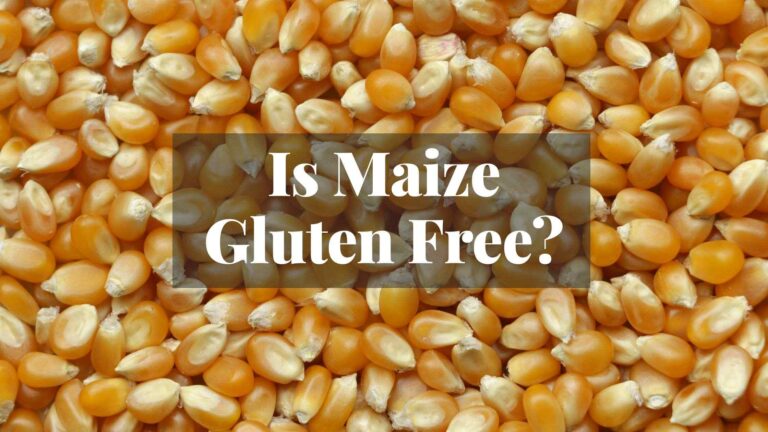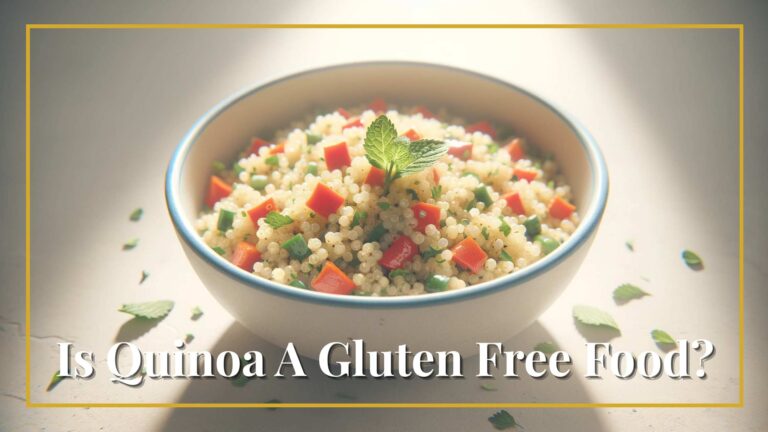Is Curry Gluten-Free? – Spicing Up Your Gluten Free Diet Made Simple!
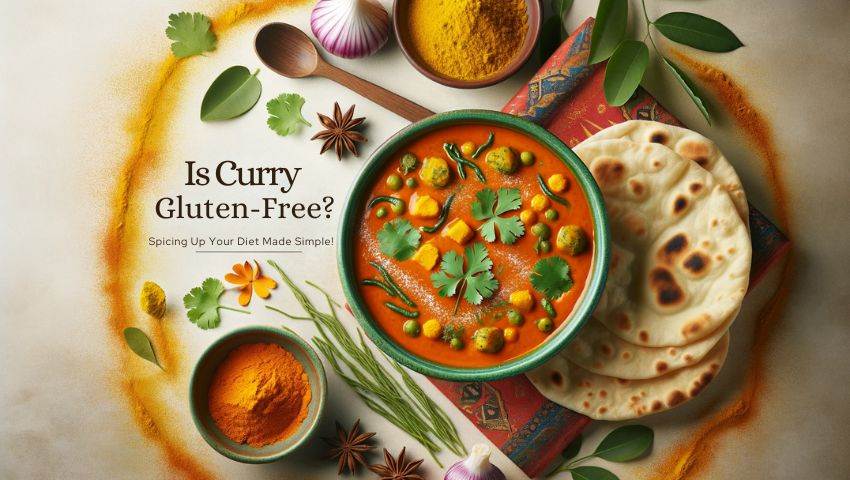
The tantalizing aroma of a simmering curry, rich with spices and bursting with flavors, has always been a favorite of mine.
But after being diagnosed with celiac disease, my love for curry was overshadowed by one pressing question: Is curry gluten-free?
Store-bought curries can indeed be gluten-free, but read labels carefully and take steps to avoid cross-contamination. Cooking yourself from scratch is the best way to ensure you can get your fix and avoid gluten exposure.
Let’s explore helpful tips on how you can still enjoy curry even when you’re on a strict gluten-free diet!
Key Takeaways
- Most traditional curry recipes are naturally gluten-free.
- Some thickeners and additives in store-bought curry sauces, pastes or powders may contain gluten.
- Thai curries often use coconut milk, making them a flavorful gluten-free option.
- Always check labels or ask about ingredients when dining out.
- Homemade curry gives you control over every ingredient, ensuring a gluten-free experience.
A Brief History of Curry: A Global Affection
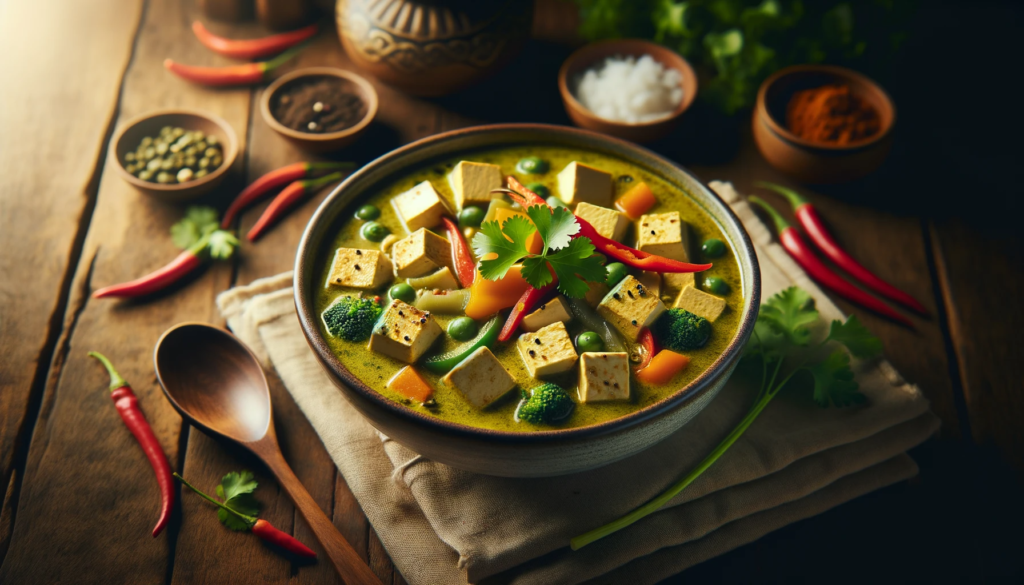
Originating in South Asia, curry has become a global sensation, varying in taste, texture, and ingredients across regions.
But regardless of its form, the foundational spices – like curry powder, turmeric, garam masala, and coriander – remain primarily gluten-free.
That said, there’s more to curry than just the spices – it could contain hidden sources of gluten
The Gluten Conundrum: Where It Lurks in Curries
The primary sources of gluten in curries often come from additives or thickeners.
Some store-bought curry pastes, sauces, or powders might have ingredients like wheat flour or other gluten-containing agents. It pays to scrutinize labels!
It’s always been essential for me to read labels meticulously to know if something is gluten-free.
Remember, the devil is in the details.
It’s always a good practice to ask or check the ingredients, especially if you’re dining out or purchasing ready-made curry pastes.
If you’re celiac, knowing how your body reacts when you ingest gluten is crucial, especially if you’re someone like me who can’t resist a good curry.
Reading Labels: The First Step to Safe Curry Consumption
As someone living with celiac disease, I can’t stress enough the importance of reading labels. It’s been my first line of defense against unintentional gluten consumption.
Look out for terms like wheat, barley, or rye, and even more sneaky terms like malt or brewer’s yeast.
However, always be cautious of the soy sauce used in some dishes, as it’s not always gluten-free.
Related article: Why Isn’t Soy Sauce Gluten-Free?
Breaking Down the Ingredients: The Usual Suspects
When we think of curry, ingredients such as chicken, tofu, bell peppers, and coconut milk come to mind.
The good news? All these components are naturally gluten-free. But, a curry’s gluten-free status might be compromised by certain ingredients.
- Thickening Agents: Some curries might use flours that contain gluten as thickeners.
- Soy Sauce: A common ingredient, especially in Japanese curries. Many aren’t aware, but standard soy sauce isn’t gluten-free.
- Pre-made Curry Pastes: These might have additives or preservatives that contain gluten.
Cross-Contamination Concerns: Safety First!
Even if a curry’s ingredients are all gluten-free, cross-contamination can be a lurking danger, especially when dining out or purchasing pre-made products.
Always verify cooking methods, especially in restaurants offering both gluten-free and regular options.
For those keen on avoiding such risks, making curry at home can be both fulfilling and safe.
Using fresh ingredients and trusted brands for things like curry powder can ensure your dish remains uncontaminated.
And, for those days when you’re in a hurry but still crave a delicious curry, many brands have sauces, powders, and pastes that do not contain gluten.
The Perfect Gluten-Free Curry Recipe
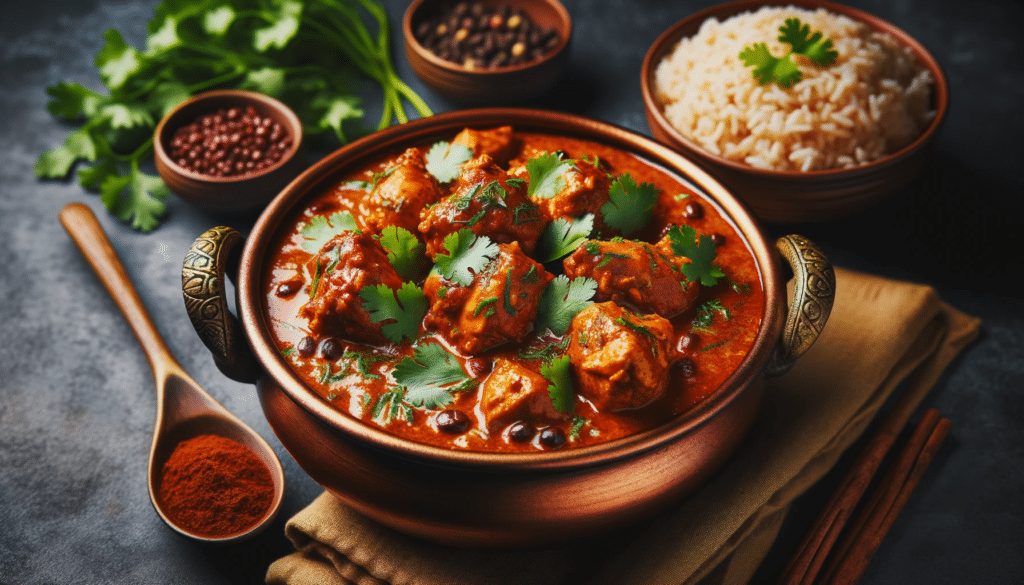
Let’s get into the fun part – making a curry that’s both mouthwatering and safe for those with celiac or gluten sensitivity.
• Choosing Your Base: Chicken is a popular choice, but tofu offers a vegetarian alternative. Remember, if you’re going for a seafood dish like garlic prawns, ensure all sauces and marinades are gluten-free.
• Selecting Your Spices: Garam masala, turmeric, and coriander are foundational spices. Ensure your spices are pure, without any gluten-containing fillers.
• Veggies Galore: Carrots, bell peppers, and red pepper add crunch, color, and flavor. Plus, they’re all gluten-free!
• Creamy Goodness: Coconut milk makes curries creamy and rich. Most curries, especially Thai curries, use coconut milk as a base.
Remember, the key to a tasty, gluten-free curry lies in fresh ingredients and a little bit of caution.
Curries can be versatile, flavorful, and, most importantly, safe for those on a gluten-free diet.
Whether you’re making a Thai green curry or an Indian chicken curry, always check the ingredients, and you’re good to go!
Eating Out: Navigating the Curry Landscape
It’s a Saturday evening, and you fancy a curry from the Thai restaurant downtown. What do you do? You ask, inquire, and double-check.
Many eateries are now upping their game in gluten-free offerings. That’s music to the ears of anyone looking to ensure they don’t go hungry in social settings.
As far as restaurants offering curries are concerned, you’ll likely find something suitable, as many establishments are able to accommodate.
But, of course, don’t take that for granted. Be sure to do your due diligence. And if in doubt, simply don’t eat there!
Wrapping it Up – Is Curry Gluten-Free?
Life with celiac disease is a blend of caution and culinary adventures. If you don’t know that by now, you soon will!
But imagine my delight when I learned that curries, spanning cultures and continents, can still feature heavily in my diet.
Whether it’s a fragrant pot simmering at home or a dine-out, always be mindful of the ingredients. With a little effort, you can relish every bite of your curry, worry-free.
Disclaimer: This content is based on my personal experience as an individual diagnosed with celiac disease and IBS (Irritable Bowel Syndrome) who follows a strict gluten-free diet. This does not constitute medical advice. Please consult a medical professional, nutritionist, or qualified dietitian for personalized, professional advice.



